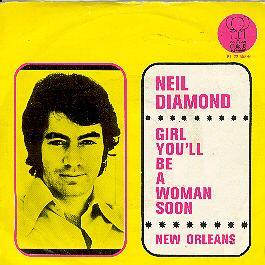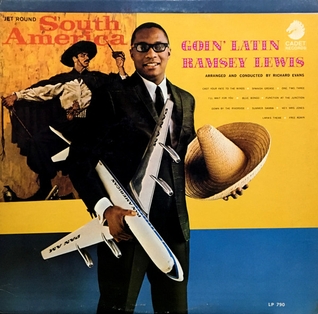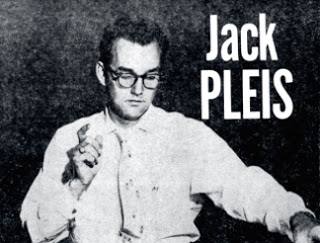
Child Is Father to the Man is the debut album by Blood, Sweat & Tears, released in February 1968. It reached number 47 on Billboard's Pop Albums chart in the United States.
Vernice "Bunky" Green is an American jazz alto saxophonist and educator.

Kenneth Earl Burrell is an American jazz guitarist known for his work on numerous top jazz labels: Prestige, Blue Note, Verve, CTI, Muse, and Concord. His collaborations with Jimmy Smith were notable, and produced the 1965 Billboard Top Twenty hit Verve album Organ Grinder Swing. He has cited jazz guitarists Charlie Christian, Oscar Moore, and Django Reinhardt as influences, along with blues guitarists T-Bone Walker and Muddy Waters.

Electronic Meditation is the first major release and first studio album by German electronic music group Tangerine Dream. It was released in June 1970 by record label Ohr.

Lionel Richie is the eponymous debut solo studio album by American singer Lionel Richie, released on October 6, 1982, on Motown Records. Originally intended as a side project at the suggestion of Motown, it was recorded and released while Richie was still a member of the Commodores; he left the group shortly after the album's release. The first single from the album, "Truly", topped the Billboard Hot 100. Follow-up single "You Are" reached number four, and "My Love" reached number five. The album reached number one on the Cashbox albums chart on December 11, 1982.

Philip Upchurch is an American jazz and blues guitarist and bassist.

Cleveland Josephus Eaton II was an American jazz double bassist, producer, arranger, composer, publisher, and head of his own record company in Fairfield, Alabama, a suburb of Birmingham. His most famous accomplishments were playing with the Ramsey Lewis Trio and the Count Basie Orchestra. His 1975 recording Plenty Good Eaton is considered a classic in the funk music genre. He was inducted into both the Alabama Jazz Hall of Fame and the Alabama Music Hall of Fame.
Larry Dunn is an American keyboardist, musical director and one of the early members of the music group Earth, Wind & Fire. Dunn, along with other members of Earth, Wind & Fire, was inducted into the Rock & Roll Hall of Fame in 2000. They received a star on the Hollywood Walk of Fame in 1995, Lifetime Achievement honors from ASCAP (Rhythm & Soul Heritage Award, 2002, 4 American Music Awards, and are inductees of the Songwriter Hall of Fame. Dunn is a co-writer of the song "Shining Star", an Earth, Wind & Fire classic song that has been inducted into the Grammy Hall of Fame.

Wave is the fifth studio album by Brazilian jazz musician Antônio Carlos Jobim, released in 1967 on A&M Records. Recorded in the US with mostly American musicians, it peaked at number 114 on the Billboard 200 chart, as well as number 5 on the Jazz Albums chart.

"Girl, You'll Be a Woman Soon" is a song written by American musician Neil Diamond, whose recording of it on Bang Records reached number 10 on the US pop singles chart in 1967. The song enjoyed a second life when it appeared on the 1994 Pulp Fiction soundtrack, performed by rock band Urge Overkill. Other versions have been recorded by Cliff Richard (1968), Jackie Edwards (1968), the Biddu Orchestra (1978), and 16 Volt (1998).

"Groovin" is a single released in 1967 by American rock band the Young Rascals that became a number-one hit and one of the group's signature songs. It has been covered by many artists, including the Young Rascals themselves in other languages. A slightly different version was later released on their third studio album, Groovin'.

Time Peace: The Rascals' Greatest Hits is a greatest hits album from the Rascals, released on June 24, 1968. It reached number one on the Billboard Pop Albums chart by September 1968. It also topped the Cash Box albums chart with a run in the Top 10 for 20 consecutive weeks

Groovin' is the third album by rock band The Young Rascals. The album was released on July 31, 1967 and rose to #5 on the Billboard Top LPs chart and number 7 on the R&B chart. Eight of the songs were released on singles with the title track reaching number 1 on the Pop chart in the U.S.

Goin' Latin is a studio jazz album with Latin percussion and style by Ramsey Lewis which was released on Cadet Records in 1967. The album reached number 2 and number 16 on the Billboard Black and Jazz Albums Charts.
Charles Stepney was an American record producer, arranger, songwriter and musician. Stepney is noted for his work with artists such as The Dells, Ramsey Lewis, Rotary Connection and Earth, Wind & Fire.

Last Train from Overbrook is an album by saxophonist James Moody recorded in 1958 and released on the Argo label.

The Rubaiyat of Dorothy Ashby is an album by jazz harpist Dorothy Ashby recorded in late 1969 and early 1970 and released on the Cadet label. On this album, Ashby plays the Japanese musical instrument, the koto, demonstrating her abilities to successfully integrate another instrument into jazz.

Jack K. Pleis was an American jazz pianist, arranger, conductor, composer and producer. He recorded on London and Decca Records in the 1950s, and Columbia Records in the 1960s. During the course of his career, Pleis worked with many artists, including Louis Armstrong, Harry Belafonte, Bing Crosby, Sammy Davis Jr., Benny Goodman, Earl Grant, Brenda Lee, and Joe Williams. Between 1950 and 1976, more than 150 songs were arranged by Pleis. His surname is pronounced "Pleece".
The Soulful Strings were an American soul-jazz instrumental group formed in Chicago in 1966. Predominantly a studio band, the project was created and led by Richard Evans, a staff producer and musical arranger with the Chess Records subsidiary Cadet Records.

Dorothy's Harp is a studio album by jazz harpist Dorothy Ashby released in 1969 via the Cadet label. A few years after releasing Dorothy’s Harp, she started working with Stevie Wonder. The record includes two Brazilian-touched compositions: "Reza" and "Canto de Ossanha". The album was re-released as a CD in 2006.
















